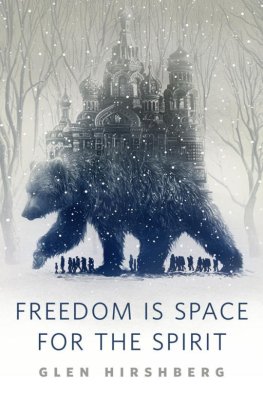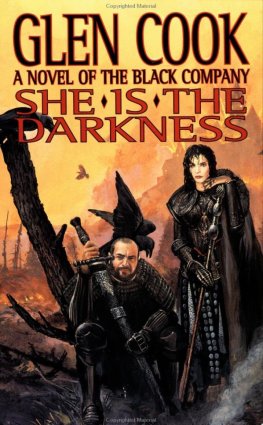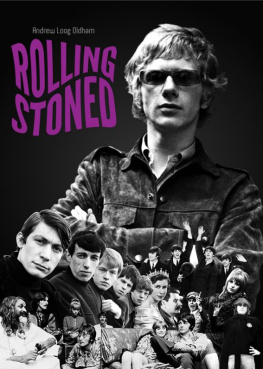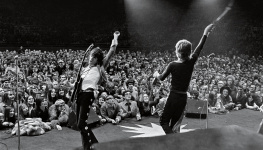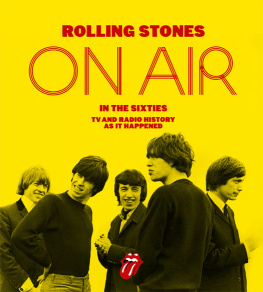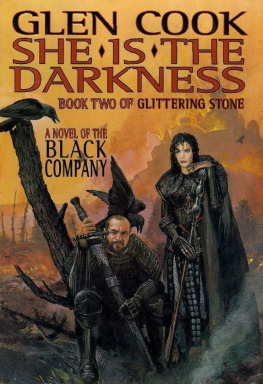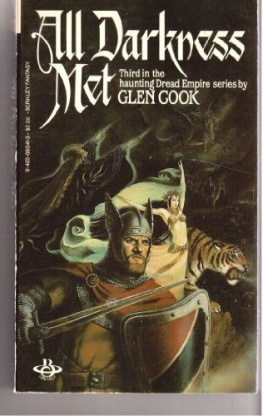Glen Hirshberg - Roll, Dark[A behind-the-scenes peek at the Rolling Darkness Revue]
Here you can read online Glen Hirshberg - Roll, Dark[A behind-the-scenes peek at the Rolling Darkness Revue] full text of the book (entire story) in english for free. Download pdf and epub, get meaning, cover and reviews about this ebook. genre: Detective and thriller. Description of the work, (preface) as well as reviews are available. Best literature library LitArk.com created for fans of good reading and offers a wide selection of genres:
Romance novel
Science fiction
Adventure
Detective
Science
History
Home and family
Prose
Art
Politics
Computer
Non-fiction
Religion
Business
Children
Humor
Choose a favorite category and find really read worthwhile books. Enjoy immersion in the world of imagination, feel the emotions of the characters or learn something new for yourself, make an fascinating discovery.

- Book:Roll, Dark[A behind-the-scenes peek at the Rolling Darkness Revue]
- Author:
- Genre:
- Rating:4 / 5
- Favourites:Add to favourites
- Your mark:
- 80
- 1
- 2
- 3
- 4
- 5
Roll, Dark[A behind-the-scenes peek at the Rolling Darkness Revue]: summary, description and annotation
We offer to read an annotation, description, summary or preface (depends on what the author of the book "Roll, Dark[A behind-the-scenes peek at the Rolling Darkness Revue]" wrote himself). If you haven't found the necessary information about the book — write in the comments, we will try to find it.
Roll, Dark[A behind-the-scenes peek at the Rolling Darkness Revue] — read online for free the complete book (whole text) full work
Below is the text of the book, divided by pages. System saving the place of the last page read, allows you to conveniently read the book "Roll, Dark[A behind-the-scenes peek at the Rolling Darkness Revue]" online for free, without having to search again every time where you left off. Put a bookmark, and you can go to the page where you finished reading at any time.
Font size:
Interval:
Bookmark:
Glen Hirshberg
Roll, Dark[A behind-the-scenes peek at the Rolling Darkness Revue]
At the very first performance of the Rolling Darkness Revue Dark Delicacies bookshop, Burbank, California, October of 2004 a thoroughly competent former student of mine showed up with a digital camera and a cinematography-minded companion from USC film school. A year later, at the kick-off event for the 2005 tour-Mystery and Imagination Bookshop, Glendale, Ca. a correspondent for National Public Radio arrived with microphone gear and snazzy digital deck. In between and afterward, at more than half of our shows, there've been other cameras, cassette recorders, even one guy with a mini-disc.
And yet.
Two years into its existence, barely a frame of film or thread of tape or byte of digital whatever exists to prove that the Rolling Darkness Revue was ever there. In 2004, my former student called me a week after our debut, baffled and embarrassed, to say that all she'd shot were shadows. Our radio correspondent (the dedicated and extraordinarily helpful Rick Kleffel, about whom more later) realized only after the 2005 launch event that he'd somehow arrived with the wrong mic, and gotten only murmurs that couldn't quite be clarified enough for NPR.
It seems that capturing the Rolling Dark in action is a little like recording EVP (that's Electronic Voice Phenomena, as in the floating, disembodied voices of the dead). There are those who swear they've heard it. A few who can claim they saw it. For the rest of you, it's going to have to come down to faith.
At least until we can sucker some unsuspecting shop in your town into letting us roll through
Creation Myth
Dennis Etchison, indisputably one of the Rolling Dark's co-founders and its eminence grise based on bristly Hemingway beard alone (never mind the multiple World Fantasy Awards, British Fantasy Awards, decades of stunning stories, blah blah, yeah yeah), still thinks this was his idea. He bases this claim, as far as I can tell, on two occurrences.
First, he refers repeatedly to a 1997 event at the Jazz Bakery in Los Angeles, California, at which he and the great Ramsey Campbell regaled a justifiably rapt club audience for more than two hours with recitations of four of their best-loved stories. There is no denying the existence of this event; unlike the Rolling Darkness Revue shows, there are tapes to prove it, and I'm the proud owner of a set.
Second, he reminds me of a conversation he and I had the second time we met, reading in a sort of line-up at Mystery and Imagination in Glendale at their annual Saturday-before-Hal-loween extravaganza. We were talking, he reminds me, about how oral storytelling played a crucial role in luring both of us into the field. We talked about favorite readers, about Ramsey Campbell huffing up like a cartoon dragon and breathing terror in slow, scorching bursts from the armchairs he prefers onstage. We also talked about wrestling, which has nothing to do with the Rolling Dark, but if you talk to Dennis for more than a minute or two, you're going to talk wrestling.
Somewhere in there, Dennis claims, he told me we should set something up. A touring cavalcade. A company of terror-players traipsing the countryside, pulling up in local bookshops or better still, little clubs and theaters, telling tales with low-key theatrical and musical accompaniment, slipping out of town again, doing the Halloween season right.
Maybe he's correct. I remember it a little differently, and in a different order. And I have no idea who broached it first. Maybe not me, because what had I done, to that point in my career, to make me think Dennis (or Ramsey, with whom I'm certain I'd had a similar conversation at the World Horror Convention the previous spring) would want to come traipsing in my wagon?
Doesn't matter. What matters is this: For Dennis, it was old-time radio. For Ramsey, it was films, I believe, at the very first. For me, it was Perry Berkeley (I think that was his name). He was my counselor at Camp Wil-loway (I think that was the camp), and one night, when I was eight years old, he told our cabin the story of the Tent Monster, which scared me so badly that I fled into the dark weeping, and ignited my feverish little brain so ferociously that I woke Perry in the middle of the night and made him tell me the story again.
At the opening of the original John Carpenter version of "The Fog" John Houseman, in the role of Mr. Machen (wink-wink nudgs-nudge) claps a pocket-watch shut, stares around him at the firelit faces of a group of mesmerized kids, and says, "11:55. Almost midnight. Time enough for one more story. Just to keep us waaarm."
I can't tell you exactly the moment when the Rolling Darkness Revue was born. But every single person who has performed with us has longed, at some point in their lives (or, in my case, most of my life), to be that guy. The one with the watch in his hands and that look on his face as he or she settles in to tell the last story before twelve
Enter Pinhead
Cheap joke, it's true, although he did write not one, not two, but three of the Hellraiser movies based around that Clive Barker character, and he has worn his hair in bristles ever since I've known him. But the truth is that whoever thought up the Rolling Darkness Revue, Peter Atkins' entrance on the scene went a long way toward ensuring its eventual existence.
A longtime friend of Dennis' and well-liked companion of pretty much everyone who has written a word of horror in the past twenty years, as far as I can tell, Pete brought some essential qualities to what had somehow become a planning committee. Urbane and relaxed, he proved equally at home chatting about glam rock with Dennis, about crazed American noir author Harry Stephen Keeler with both of us, and about actual tour details with me. He has a winning, understated Liverpudlian accent that had me imagining scores of helpless American listeners leaning eagerly forward for his tales (even Dennis practically curls up in his lap). And he has a crucial knack for phrases like, "Uh, fellas, we're now one month from showtime, and I still feel like I'm about to stand up in school with my trousers at my ankles."
Plus, like me, he plays music. Or, as both of us would say, plays at music. He has a band quite rockin', very fine called Invisible Cinema, appropriately enough. (My own band is called Momzer, and if you want to know what that means, ask a Yid-dishe friend, but make sure you're not calling your Yiddishe friend that.) Gradually, almost miraculously, an actual performance concept began to cohere out of our collective, perpetual writers' fogs
Punk Rock
I found the voice-alteration unit in a closet in the band room at the high school where I teach. The fact that its accompanying power supply adapter had a frayed connecting wire and cracked back cover that melted a little more every time electricity surged through it just gave the whole thing that appropriate patina of risk.
After several hours of jamming, Pete and I discovered a chord on which we could both improvise for thirty or even sixty minutes (it was D). Two hours into our lone officially scheduled run-through, Dennis looked up from WWWhatever-letter-goes-here on the WB long enough to announce that he had a passage from his book, The Death Artist, that would make an ideal introduction to a night of storytelling, particularly if delivered through the voice-alteration box, which, incidentally, he would not be plugging in, that was up to us young'uns.
I bought a cheap fog machine and experimented in the living room and made my two small children happier than they've been since the last time our cat jumped on my head while I was sleeping.
Font size:
Interval:
Bookmark:
Similar books «Roll, Dark[A behind-the-scenes peek at the Rolling Darkness Revue]»
Look at similar books to Roll, Dark[A behind-the-scenes peek at the Rolling Darkness Revue]. We have selected literature similar in name and meaning in the hope of providing readers with more options to find new, interesting, not yet read works.
Discussion, reviews of the book Roll, Dark[A behind-the-scenes peek at the Rolling Darkness Revue] and just readers' own opinions. Leave your comments, write what you think about the work, its meaning or the main characters. Specify what exactly you liked and what you didn't like, and why you think so.

